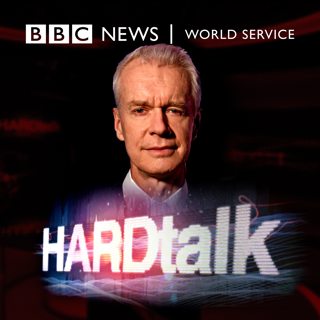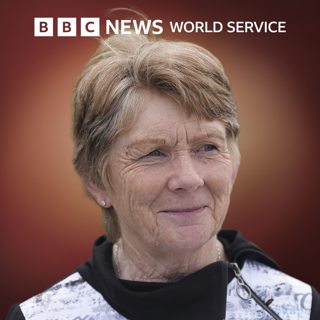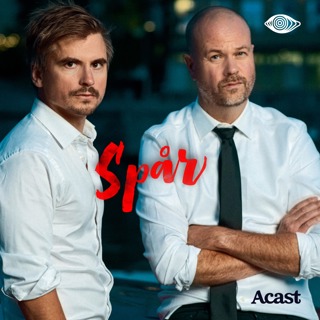
Dr. Steve Peters - Psychiatrist working in elite sport
With the London Olympics just weeks away, athletes are completing their final preparations - and that means fine tuning the mind as well as the body. In elite sport the title 'head coach' increasingly refers to the specialist hired to get inside the athlete's head to instil a winning mentality. Stephen Sackur talks to the psychiatrist Dr Steve Peters - a consultant to the British Olympic cycling team and a highly prized adviser to a host of other famous sporting names. Is winning really all in the mind?(Image: Steve Peters speaks to the British cyclist Victoria Pendleton during the UCI Track Cycling World Cup Classic in February, 2011. Credit: Getty Images)
24 Juni 201223min

Beeban Kidron - Film Director
The 2012 Cannes Film Festival was criticised when all 22 films in the competition were directed by men. But Hollywood is not much better - a recent study found that less than 10 per cent of its directors were women.So why are there so few women film-makers? Sarah Montague puts that question to Beeban Kidron, one of the few women to have made the big time. She is perhaps best-known for directing the second Bridget Jones movie, The Edge of Reason. But most of her other films concern far more radical material: a documentary about the anti-nuclear women protesters at Greenham Common, a TV adaptation of the lesbian novel Oranges Are Not the Only Fruit. Her latest documentary is about India's sacred prostitutes. Is it women and the choices they make that interests her most?(Image: Beeban Kidron in 2005. Credit: Ian West / PA Wire)
22 Juni 201223min

Chuka Umunna - UK Shadow Business Secretary
The Greek election in June 2012 has saved Europe from economic and financial meltdown - for now. No-one in Europe believes the combined currency, banking and sovereign debt trauma is over. And right across the continent, politicians are struggling to answer a simple question: how does Europe find a way back to sustainable economic growth?Stephen Sackur talks to Labour's business spokesman Chuka Umunna. He says active government can revive and reshape capitalism. Are business leaders or the public ready to believe him?(Image: Shadow Business Secretary Chuka Umunna (left) with Labour Party leader Ed Miliband. Credit: Chris Radburn / PA Wire)
20 Juni 201223min

Meir Dagan - Director of Mossad (2002-2010)
Israel's secret service, the Mossad, is regarded as one of the most resourceful and ruthless intelligence agencies in the world.But are Israel's top spies on the same page as the country's politicians when it comes to an assessment of the threat posed by Iran? The question was prompted by Meir Dagan, director of Mossad until a year and a half ago. Just months after retiring he said an Israeli strike on Iran's nuclear facilities would be stupid. Why did he go so public so quickly, and is there a dangerous gulf between Israel's political leadership and security chiefs?(Image: Meir Dagan - left - shakes hands with former Prime Minister Ariel Sharon while receiving his letter of appointment in October 30, 2002. Credit: Getty Images)
17 Juni 201223min

Wayne McGregor - Choreographer
Wayne McGregor is known for pushing boundaries in an art form usually associated with traditional entertainment. Once known as the bad boy of ballet, he has been the resident choreographer in one of the dance world’s pillar of establishment, the Royal Ballet in London’s Covent Garden, for six years. He continues to challenge his audiences and his dancers to the limit, constantly concocting new ways of marrying ballet with the world of science, new technology, pop music, art and architecture. HARDtalk’s Katya Adler asks if this is why he remains the maverick inside the ballet establishment.
14 Juni 201223min

Ali Asghar Soltanieh - Iran's ambassador, International Atomic Energy Agency
Katya Adler talks to Dr Ali Asghar Soltanieh, Iran's ambassador to the UN's nuclear watchdog, the IAEA.Iran's nuclear power programme has been a source of international tension for the past decade. At no point has it been able to shrug off the suspicion that its pursuit of nuclear energy is also an effort to make nuclear weapons. Iran insists it has no such ambitions but many of the world's major powers remain unconvinced and Israel is warning it will attack. The international community is seeking assurances from Iran at a fresh round of talks in Moscow later this month. Katya Adler asks Dr Ali Asghar Soltanieh what guarantees Iran will give that its nuclear ambitions are entirely peaceful.(Image: Iranian Ambassador to the International Atomic Energy Agency (IAEA) Ali Asghar Soltanieh. Credit: AFP / Getty Images)
12 Juni 201223min

Paul McKeever - Chairman of the Police Federation of England and Wales
HARDtalk's Katya Adler speaks to the chairman of the Police Federation in England and Wales, Paul McKeever. The police in Britain, used to being revered, respected and admired at home and abroad, find themselves under a heavy black cloud. With allegations of bribery and corruption denting the public's trust, the force now also faces dramatic cuts to its budget and changes to its structure. Paul McKeever, himself a long-serving officer, says proposed government reforms could lead to the destruction of the police as we know it. But with the force untouched by change for decades, is now not an ideal opportunity to shape up for the challenges of the 21st century?(Image: Paul McKeever in 2011 Credit: Getty Images)
10 Juni 201223min

Francoise Barre-Sinoussi - President Elect, International Aids Society
Could we soon see a cure for HIV/Aids? Francoise Barre-Sinoussi thinks so. She's the Nobel Prize-winner who helped first identify the virus 30 years ago. She argues that the need to pour money into fighting one of the world's most deadly diseases is as great as ever. Already nearly 30 million have died from it. But with budgets being cut, can we afford more expensive research?(Image: Francoise Barre-Sinoussi Credit: Getty Images)
8 Juni 201223min






















